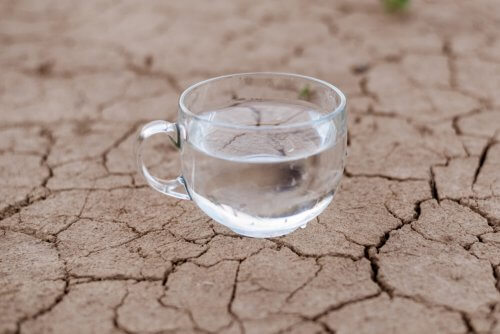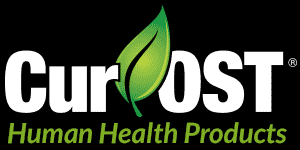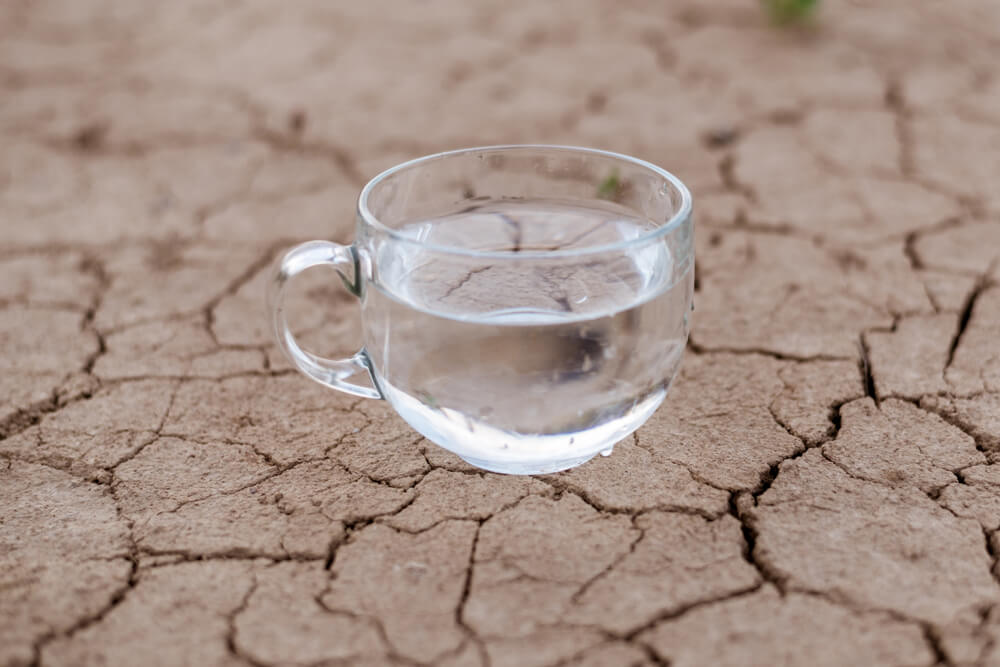Dehydration is a real issue in today’s society, not just amongst adults but children of all ages. Your body is upwards of 60% water, which is vitally important for cellular function, not to mention blood flow. Considering the vast number of health concerns we are dealing with in today’s society, one has to question what is the connection with dehydration? Does it play a role and if so, how can you improve that situation? Well, based on statistics, 75% of all people are chronically dehydrated, on a subclinical level. That is a huge number and very relevant in more ways than you can imagine. Let’s look at why this number exists, how it impacts your health, and what you can do about this dehydration situation.

Let’s take a look at just a few readily evident clinical problems that are associated with subclinical dehydration. More than likely, you are experiencing at least one if not more of these problems yourself, which are all linked to reduced hydration in your body.
- Constipation
- Dry, itchy and flaky skin
- Dry mouth and throat
- Dry, irritated eyes
- Reduced urination frequency and dark urine
- Feeling dizzy, fainting (vertigo)
- Reduced cognitive ability, memory, and fuzzy head
- Rapid heart beat
- Vaginal dryness
- Irritability
- Sunken eyes in the bony orbit
- Insomnia or difficulty sleeping
- Tinnitus
- High blood pressure
- Low blood pressure
- Circulatory concerns
- Muscle cramps
How many clinical signs do you have? I can say that I personally have at least 3 on that list. Shameful in truth, as this is yet another thing that we are readily in control of when it comes to our health, but yet, dismiss for various reasons. Ever wonder if you could just drink more water every day, eat more ‘moisturizing’ foods, and possibly reduce or eliminate your blood pressure medications or even the need for all of those external body moisturizing lotions and creams? Well, you can! It is readily possible!
Our bodies are upwards of 60% water. The heart and brain are 73% water, the lungs are 83% water, your skin is 64% water, muscles and kidney are 79% water and even your bones are composed of 31% water. (U.S. Government) Take that water away and your cells begin to malfunction! It is quite incredible to see those numbers and how such as easily accessible natural resource can impact our health. It is also plainly obvious as to why when a person or even a pet is admitted to the hospital, one of the first things done is to set up an intravenous line administering a saline solution for rehydration. Every patient is dehydrated! Not matter what the presenting complaint, every patient (human or veterinary) is dehydrated! Wrap your head around that one for a minute.
Aside from the clinical symptoms noted above, one thing to also notice is your urine. In times of dehydration, your body will create less urine and what urine is created is often dark in color. Why? Well, let’s take our bodies first thing in the morning. The first urine of the morning is often dark in color, right? For most, that is the case at least, or at least darker in color, meaning yellow. You are not drinking fluids while you sleep and your body enters a state of dehydration during that time. Your kidneys are able to sense the situation and through various hormonal pathways, your kidneys are able to hold back water and some electrolytes. This then concentrates your urine. So, if your urine is dark in the morning, or honestly, if it is dark throughout the day, it means your kidneys are concentrating it and holding water back. Why? Because you are dehydrated and not consuming enough water. Ideally, you should have a tall glass of warm water before you retire for the night to aid in rehydrating your body, which should help to make your morning urine less concentrated and yellow. Interestingly enough, research has indicated that having a glass of water before bed can reduce the incidence of a heart attack. Did you know that? (Heart Foundation)
Why Am I Dehydrated?
Why are we all so dehydrated? Well, there are many reasons, but the number one reason is that we are not drinking enough water. The general recommendation for water intake per day was eight, eight ounce glasses, or 64 ounces of water per day. This is a general recommendation and most do not get this amount, at least of water. Many people will consume that amount or higher of other beverages, but not water, and just because that beverage you choose to drink contains water does not make it count. We will discuss that in a moment.
The amount of water required by your body will vary from one person to another. If you are doing strenuous work all day, such as physical labor and sweating, then your requirements will be higher. Some generally try to consume one gallon of water each day, which is not a bad goal in all truth. You have to remember that most of us are starting in a deficit situation, so we have to regain ground and then move forward. This is true in emergency medicine, where we determine how dehydrated a patient is and calculate their IV fluid administration to first compensate for this deficit, and then follow with maintenance levels.
Now, many health conditions will also create a more negative state or deficit of water, mainly being things like vomiting or diarrhea (loose stools). These are obvious sources of fluid loss and must be compensated for in the body in addition to maintenance intake of water. Many medications that we are taking will also contribute heavily to dehydration, which include diuretics which many are taking for cardiac, kidney or blood pressure concerns. Additionally, even anti-histamines for allergies will dehydrate the body.
When it comes to beverages, we all consume plenty of ‘fluids’ each day, but this is not the same as water. Any time a ‘beverage’ contains caffeine, which includes coffee or derivatives along with energy drinks, you are losing water, not gaining it. Why? Because caffeine dilates or increases blood circulation to the kidneys and through this action, the kidneys will almost automatically excrete more water in the urine. This is why you tend to urinate more when consuming coffee or these energy drinks. You are not peeing more because you are over-hydrated, but instead it is quite the opposite. So, you can consume 2 gallons of coffee and energy drinks per day, but chances are you are more dehydrated as a result and not hydrated.
Outside of the clinical signs noted above, here’s another quick test of hydration, which is called the ‘skin turgor‘ test and used heavily in veterinary medicine. Take the back of your hand or any other accessible body part on an extremity. Pinch up a fold of skin, tenting it slightly, then release it. If hydration is good, that skin tent will bounce back to its normal position within a second or two. Does your ‘skin tent’ stay up for longer than three seconds? If so, you are dehydrated, or at least your skin is lacking moisture.
Regaining Hydration in Your Body for Health
Hydration of our bodies tends to become more of an issue as we age. In the world of Ayurvedic medicine, they state that as we age, we enter the stage of ‘vata’, which is a dry and cold state. Think about that for a moment. You don’t have to know anything about Ayurvedic medicine to see how true that statement is. Almost every elderly person that I know has lost body condition, has wrinkly and thin skin, and is cold-natured. This is not generally true for our bodies when we are younger. Instead, during youth, our skin is vibrant and bounces back, having a glow and radiant health. Additionally, when we are younger, our bodies kick out heat. I remember having an elderly woman as a client years ago. She would grasp and hold my hand, noting how warm I was at the time. Oh, how things change as you age and pack on years of time!
The main thing to regain hydration is to drink your water! I know, many will say it is so bland and boring, but in all honesty, get over it! It is only bland and boring in comparison to the beverages we have been introduced to in the market today. All loaded with flavors, sugars, sweeteners, and other chemicals that are likely not doing your body any good. And, no, you do not need to add a ‘flavoring’ to your water, at least not a chemical flavoring. If you need to add flavoring, add a little bit of lime or lemon, or even honey. Drink, drink, and drink! That is what we should be doing, but we should be drinking water. Now, I love my coffee and that is okay. Drink your coffee but watch what is added to it. You can create a caffeine nightmare with some beverages people are drinking, which not only further dehydrate your body, but they are stimulants, creating a potential cardiac crisis in the right situation. Just make sure you are sipping water along with that coffee and watch how much coffee you are drinking.
Outside of water, what else can you do to rehydrate your body?
In the world of Traditional Chinese Medicine, moisture in the body is referred to as being a component of ‘yin’, which is the opposite of ‘yang’. In TCM, they view us as becoming Yin deficient as we age, which is not too far off from the ‘vata’ stage in Ayurvedic medicine. One major sign of Yin deficiency in TCM is lower back pain and discomfort, along with anxiety and sexual concerns. All pretty common in society, and not just in the older group! So, in Chinese medicine they encourage consuming foods and herbs that are viewed as being ‘Yin’ tonics. These foods and herbs moisturize the body, or at least help it to move that direction. Even then, in my experience playing with herbs for many years, you still have to have water coming in behind them.
I’ve often wondered how these ‘yin’ herbs help to create or restore moisture to the body. In truth, the herb itself is dry in nature, being a powder, so how can it increase moisture? I’ve contemplated this and in doing this, I have come to realize that most ‘yin tonic’ foods and herbs are also very high in complex carbohydrates, which includes fiber. These carbohydrates can bind water, not just in the digestive system (fiber), but in the entire body as they are absorbed and distributed. Now, these are complex carbohydrates, so not the same as the simple sugars we are consuming in sweets, cakes, and many sugary drinks. You don’t get off that easy and those drinks do not classify as yin tonics! One other tidbit of interest is that in TCM, these Yin tonic foods and herbs are seen as being ‘heavy’ in nature and hard to digest for some, which is due to their carbohydrate content. When a person has a hard time digesting them, usually there are complaints such as gas, bloating, or loose stools. In those cases, it signifies that the person has underlying digestive weakness, which must be addressed either alongside of the yin tonic herbs and foods, or by itself prior to those herbs. If you think about it, if there is digestive weakness, then no matter what you put into your gut, you will not likely absorb it. Sort of like giving a person a glass of water when they are nauseous and vomiting. Just doesn’t help. I will address gut health and digestion elsewhere with some tips on how to benefit that area of health. One main herb that can be taken daily and even mixed lightly with water is ginger. Great for the digestive system!
So, what herbs and foods can benefit moisture and Yin in your body? (complete list)
- Sweet potato
- Asparagus
- Honey
- Bananas
- Kidney and other beans
- Some oils (olive)
- Pineapple
- Pears
- Pomegranate
- Yams
- Watermelon
Keep in mind that foods can be either Yin or Yang, so if you are seeking to increase your Yin or moisture, you may want to reduce your intake of ‘yang’ food types which can be heating and drying. Coffee, unfortunately, along with alcohol, falls into that ‘yang’ category.
Herbs that I find very useful and readily available:
- Wild Yam
- Amalaki
- Asparagus Extract (Shatavari)
- Apple Pectin Fiber
- Beet Root
- Marshmallow Root
- Aloe Gel
Interesting tidbit for women that are reading this article! Yin is associated with female qualities, while Yang is more masculine. Many Yin tonic herbs and foods also have phytoestrogen capabilities and thus support female health and vitality. This is especially true for wild yam and asparagus extract herbs (Shatavari). Thus, it is not uncommon for women with conditions such as vaginal dryness or menstrual concerns to note a positive improvement with utilization of these herbs. The positive gains are associated with moisture replenishment but also the active phytochemicals present in the herbs! Here is an article on Shatavari herbal extract and women’s health. Now, this doesn’t mean men shouldn’t take advantage of these herbs! Men require balance and sometimes we tend to have too much ‘yang’ in our system, which creates the irritability and dehydration. I personally take a couple of these herbs everyday!
So, there you have it! Subclinical dehydration defined and explained, along with means of improving the situation. Dehydration is real and a major player in many health ailments whether if that is just dry skin, constipation, or high blood pressure and kidney conditions. It is something you and I both have the power to change, just by reaching for that tap at the kitchen sink and filling a large bottle to nurse all day long!
Rehydrating your body can immensely improve your physical and mental health! In fact, many mental conditions are associated with dehydration! Sure, you may have to visit that bathroom more often than you would like, but isn’t that better than having itchy skin, dry eyes, constipation, or otherwise?
Author: Tom Schell D.V.M, CVCH, CHN


